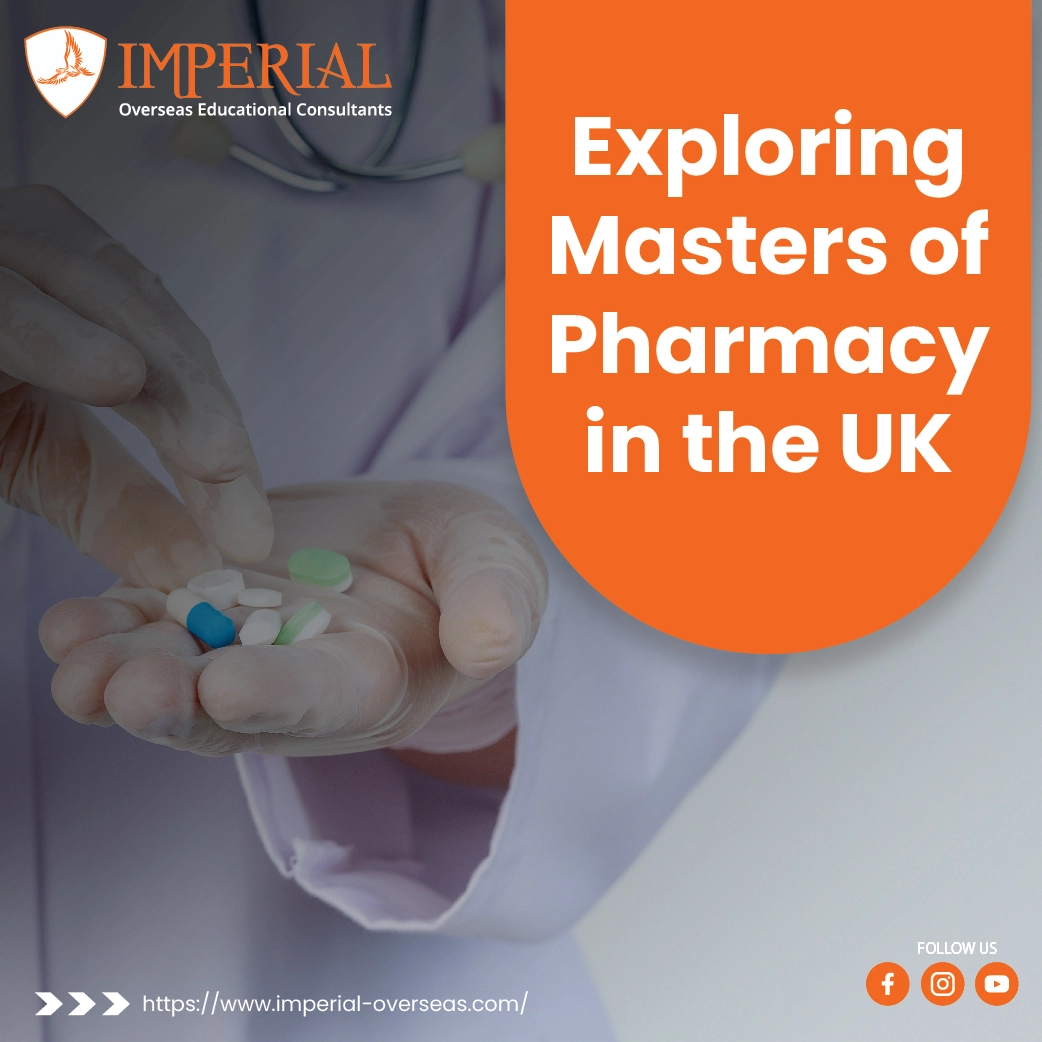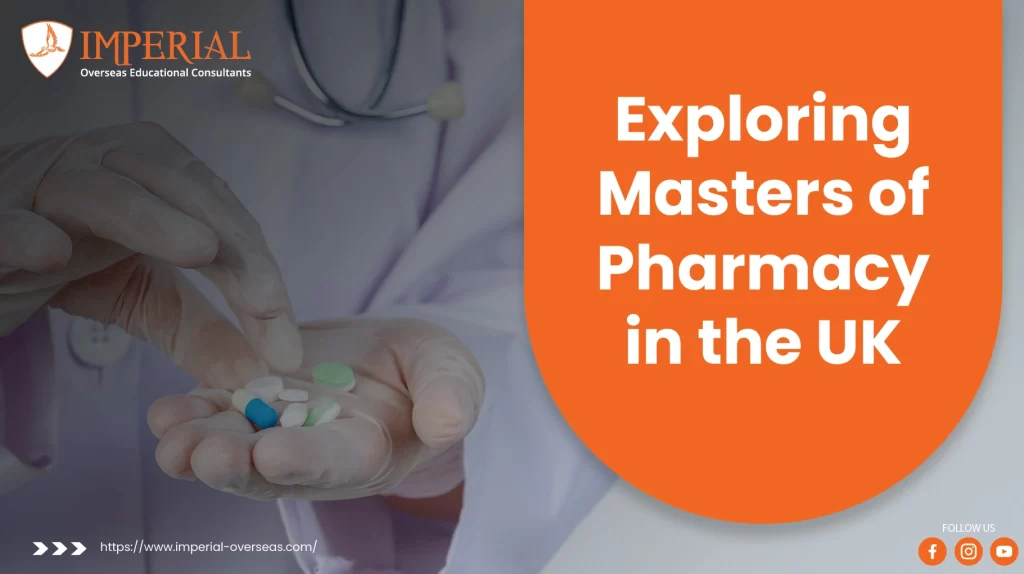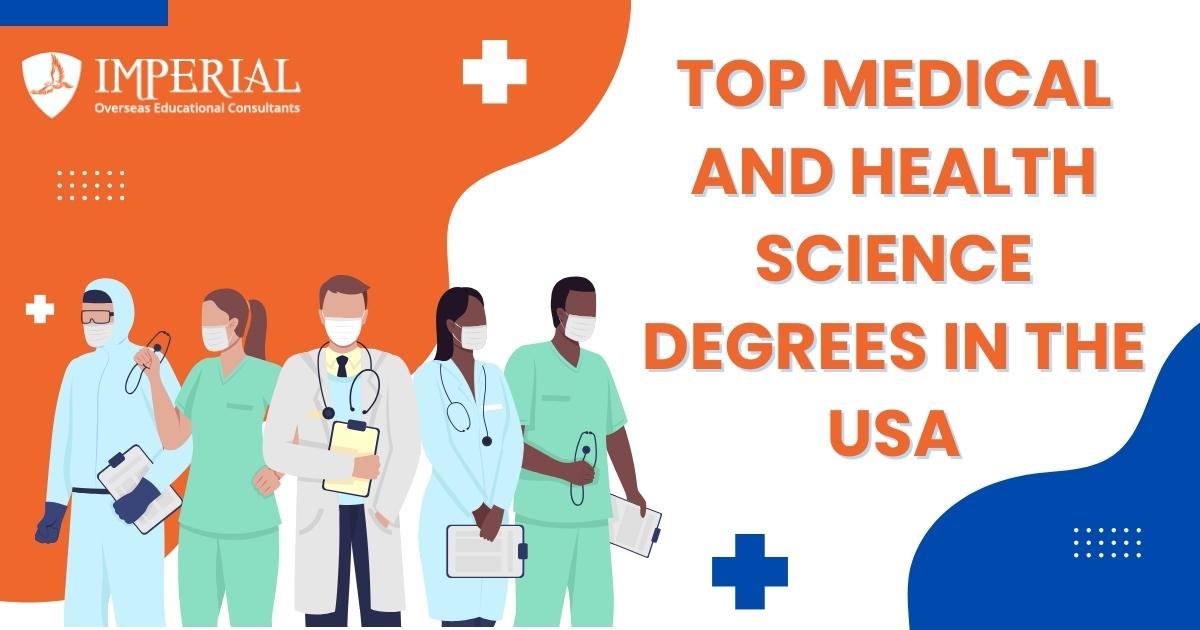
Exploring Masters of Pharmacy in the UK

Exploring Masters of Pharmacy in the UK
The UK stands tall as one of the prime choices for international students aiming to delve into the world of pharmacy. Every academic year, around 3000 students, with almost 20% being international, opt for pharmacy studies in the UK.
What makes pursuing a Master of Pharmacy in the UK appealing? This Master’s in Pharmacy guide aims to provide an in-depth understanding of the journey, from the intricacies of the courses to the potential career outcomes!
Why consider a Masters in Pharmacy in the UK?
Well, the UK hosts top-notch universities and a vibrant mix of cultures for international students. Plus, the pharmaceutical industry in the UK boasts big names like Pfizer, Novartis, and more, offering ample job opportunities. You’ll gain comprehensive knowledge about the chemistry and pharmacology of drugs, along with an understanding of biology, disease pathology, and diagnosis.
Pharmacy education in the UK has transformed over the years, emphasising an integrated approach. This means you’ll have early patient contact, short work placements, and interactions with other healthcare professionals like doctors and nurses.
The teaching methods are modern, incorporating workshops, teamwork, and innovative learning techniques to support all students, including international ones. There’s also a strong focus on developing lifelong skills and professionalism throughout your course.
Criteria for a Masters Degree in the UK
Admission involves going through university criteria, application deadlines, and submitting required documents.
Academic Qualifications: Typically, you need an undergraduate degree related to your master’s course.
English Language Skills: If English isn’t your first language, you’ll need a PTE or IELTS score.
Work Experience: Some courses may need work experience, usually 1-3 years.
Recommendation Letters: Most schools want two recommendation letters from tutors or professionals.
Statement of Purpose: A written piece explaining your motivation and career goals. There are also integrated programs that take about 4 years to finish.
Top Pharma Universities in the UK
Some incredible pharmacy courses that students can consider. Here’s a peek at the top ten universities offering these programs:
University of Lincoln
Offering a BSc (Hons) in Pharmaceutical Science, focusing on different pharmacology areas and encouraging real-world experience through placements.
Ulster University
Their Pharmacy MPharm (Hons) program includes placements at various stages, setting students up for their careers.
University of Portsmouth
Offers a Pharmacology BSc Hons program within the Faculty of Science and Health, blending teaching and internationally recognized research.
University of Leeds
They’ve got a Pharmacology MBiol program dealing with various challenges in the pharmaceutical world and preparing students for the workforce.
University of Glasgow
The Clinical Pharmacology MSc (MedSci) delves deep into clinical pharmacology for future professionals, focusing on tailored patient care planning.
St George’s, University of London
Provides a Clinical Pharmacology BSc program that thoroughly covers applied clinical pharmacology, right from disease discovery to drug development.
Scholarships Available
There’s a plethora of scholarships available for those interested in pursuing pharmacy in the UK. Various scholarships, like Chevening, Commonwealth, and GREAT Scholarships, offer financial support covering tuition fees, living expenses, and sometimes airfare for eligible candidates.
Interviews for overseas applicants are common, and they cover not only chemistry and biology but also your pharmacy-related work experience and your alignment with the UK National Health Service core values.
Preparing for a Career in Pharmacy
A UK pharmacy degree, called the MPharm, is a 4-year university program. There is no equivalent of a Bachelor of Pharmacy (BPharm) in the UK; the 4-year MPharm qualifies you with a Master’s degree directly. GPhC accreditation ensures that every graduate meets educational standards.
Approximately 3000 students enrol in pharmacy degrees in the UK every year, with around 15% being international students. The UK is known for its multicultural and diverse society, welcoming international students and offering them a rich cultural experience.
Pharmacist Registration in the UK
To become a registered pharmacist in the UK and practice, home students must obtain an MPharm degree, undergo 52 weeks of supervised pre-registration training in clinical practice, and pass a national registration exam set by the GPhC.
Overseas students who complete a 4-year MPharm course can apply for pre-registration placements in the UK, becoming UK registered pharmacists following the same process as home students, subject to visa regulations and placement availability.
Future after Master’s in Pharmacy in the UK
Top-ranking universities in the pharmaceutical domain are found in the UK renowned on world ranking lists. Completing an MPharmacy in the UK opens doors to high-paying positions in domestic and global companies.
Graduates often find positions in sectors like healthcare, research, and regulatory bodies, with average salaries ranging from £120,000-£191,000. When applying for a visa, you’ll need essential documents like passport details, photographs, proof of funds, and sponsor’s consent, and also complete a tuberculosis test.
Key Takeaway
The UK is a popular study-abroad destination for pharmacy enthusiasts. The Master of Pharmacy offers a gateway to numerous rewarding careers in pharmaceutical companies, hospitals, and regulatory bodies.Â
For more insights and updates, professional counselors from Imperial Overseas can help guide the way to success. Contact us to know more about the admission criteria and course duration among universities so you can stay updated!



